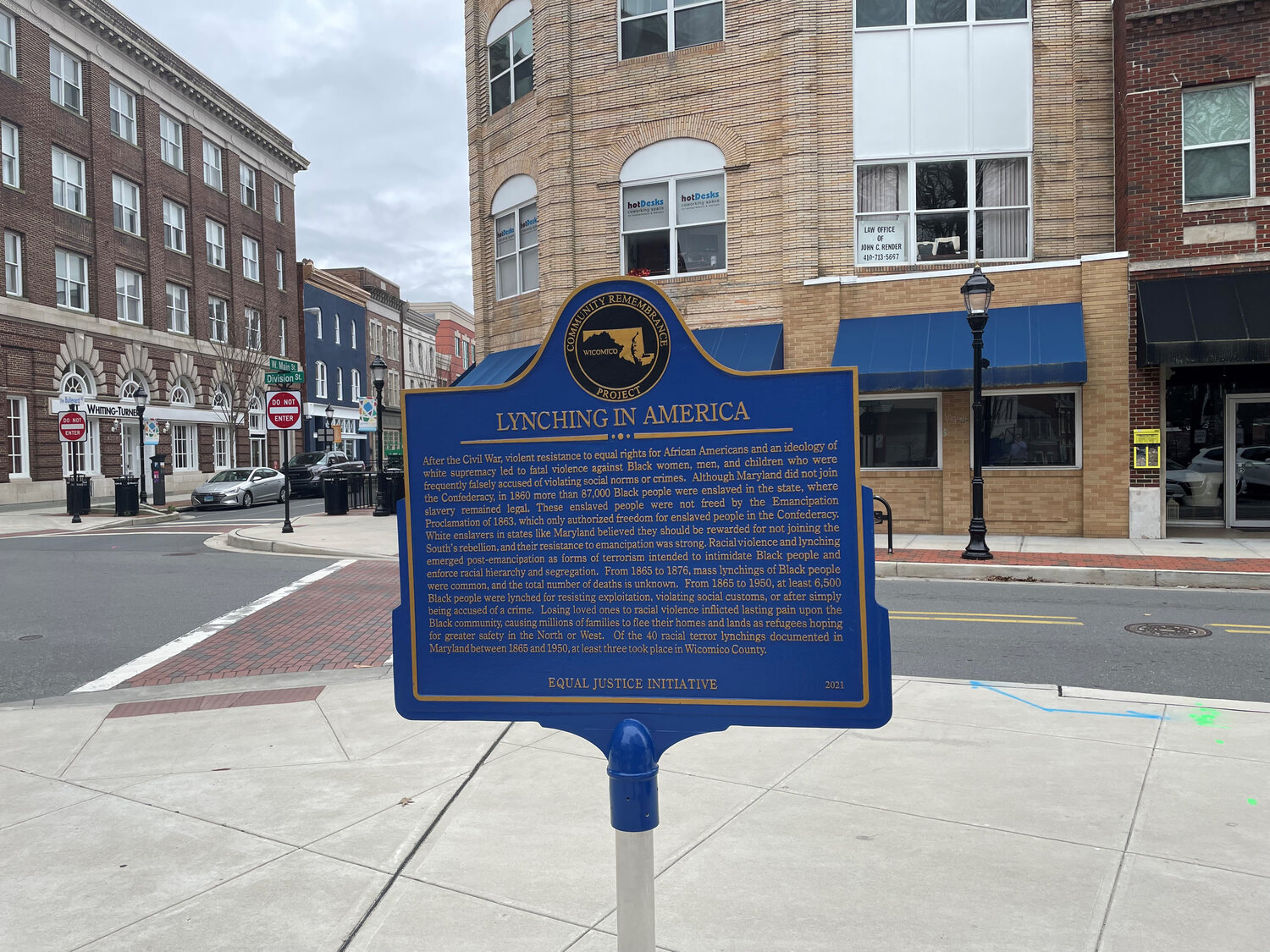Salisbury City Council advances lynching apology resolution
SALISBURY — Salisbury leaders are closer to formally apologizing for three separate lynchings of Black men that took place in the city’s past through a resolution.
City officials …

You must be a member to read this story.
Join our family of readers for as little as $5 per month and support local, unbiased journalism.
Already a member? Log in to continue. Otherwise, follow the link below to join.
Please log in to continue |
Salisbury City Council advances lynching apology resolution
Update: City Council approved the resolution at its March 11 meeting.
SALISBURY — Salisbury leaders are closer to formally apologizing for three separate lynchings of Black men that took place in the city’s past through a resolution.
City officials said the meaning behind the resolution is to recognize and acknowledge the “racial injustice” of the events and to apologize to the families and descendants of the three victims including Garfield King, Matthew Williams and an unknown middle-aged Black male.
The apology resolution, drafted by the Mayor’s Office, was recommended by City Council to move forward during a March 4 work session meeting. The proposal was not unanimous as Councilwoman April Jackson said she was “still not pleased” with the measure.
Salisbury’s Truth, Racial, Unity, Transformation & Healing Committee voted 4-0 at its Feb. 21 meeting to move the plan forward. The 13-member body was created two years ago to provide recommendations to the mayor of furthering its mission of welcoming and embracing diversity, equity and inclusion.
During the March 4 meeting city staff liaison Jessie Turner told the council there are currently seven vacancies on the committee.
A historical marker was placed in downtown Salisbury in May 2021 to memorialize the three men.
Garfield King, an 18-year-old Black man, was lynched in 1898 in Wicomico County after he allegedly shot and killed Herman Kenney, a 22-year-old white man, following an argument. King told police he shot Kenney in self-defense. King was dragged from his jail cell, beaten, clubbed and hanged from a tree.
In the Wiliams case, on the evening of Dec. 4, 1931, the 23-year-old was pulled from a bed in the old Negro Ward at Peninsula General Hospital by a mob that was angered by the shooting death of Williams’ employer earlier that day.
Williams, who was being treated for gunshot wounds he received during the incident, was pulled from his bed, stabbed with an ice pick and then dragged behind a truck three blocks to the Wicomico County Courthouse lawn where his body was strung up in a tree.
The proposed resolution said then-Salisbury Police Chief allegedly helped lead the mob from the hospital to the courthouse and then-Fire Chief Frederick Grier, Jr. allegedly provided the mob with the rope used to hang Williams.
A third and unidentified man also was believed to have been lynched by the same mob that killed Williams. His body was found on the railroad tracks on the outskirts of Salisbury a few days later.
The marker was part of an effort led by the Maryland Lynching Memorial Project. The group has documented racial terror lynchings in 18 of Maryland’s 24 counties and worked with affiliate groups in 13 of those counties.
At the time, then-Gov. Larry Hogan issued a full posthumous pardon for 34 victims of racial lynching in Maryland between 1854 and 1933, on the basis that these extrajudicial killings violated fundamental rights to due process and equal protection of law. It was the first time in history that a governor issued a blanket pardon for the victims of racial lynchings.
While Garfield was included in the pardons, Williams was not because he was never arrested or charged with a crime.
“The Mayor and Council of the City of Salisbury believes that racial injustice must be acknowledged and remembered before society can heal from wounds of the past and build mutually respectful relationships across racial and ethnic lines,” the proposed resolution states.


 By
By 



